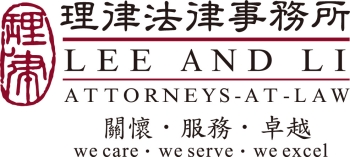The intervenor filed an invalidation action against the trademark 約克夏茶YORK SHIRETEA and a device mark (Registration 158031) in respect of services in Class 42 for a violation of Articles 30-1(8) and 30-1(11) of the Trademark Act. After examination, the defendant (ie, the IP Office) cancelled the trademark's registration. Dissatisfied, the plaintiff filed an administrative appeal with the Ministry of Economic Affairs, which was dismissed. The plaintiff then filed an administrative suit with the IP Court.
In its judgment (108-Xing-Shang-Su-Zi-109), the IP Court held as follows:
- The main distinctive elements of the trademark were the English words 'York shire' and the Chinese characters 約克夏. The English words were combined with the word 'tea' and the Chinese characters 約克夏 were combined with the character 茶. The mark gave the impression that the Chinese term was a translation of the English term and vice versa.
- Yorkshire is the geographic name of a UK county which is well known for its rich cultural heritage and natural landscapes. It could thus be ascertained that on 1 February 2002 when the trademark was registered, domestic consumers should have been aware that Yorkshire (約克郡) was a renowned UK place name.
- The plaintiff and its predecessor were both legal persons in Taiwan. Further, the plaintiff had provided no facts or evidence establishing that the services designated for the trademark at issue related to Yorkshire. Apparently, neither the trademark nor the designated services were related to Yorkshire. As such, use of the mark would likely confuse people as to the origin of the associated products.
- According to the evidential materials provided by the intervenor, the plaintiff had sold its Yorkshire Tea (約克夏茶) products via major online shops. As a result, the IP Court held that the plaintiff's use of the trademark had taken advantage of the intervenor's brand reputation and the geographical name associated therewith, thus enabling the public to mistakenly believe that the products bearing the trademark at issue, which originated from Taiwan, had been produced in Yorkshire.
The judge held that the trademark should be subject to Article 30-1(8) of the Trademark Act and dismissed the plaintiff's suit.
The plaintiff appealed the IP court's judgment. After examination, the Supreme Administrative Court decided that the appeal was illegal and should be dismissed (Ruling 109-Cai-Zi-1384). The plaintiff then appealed for retrial. The Supreme Administrative Court held that the appeal of retrial was groundless and should be dismissed (Ruling 109-Zai-Zi-2).





